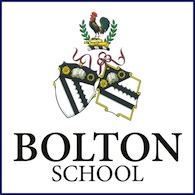A recent study concluded that learning a musical instrument does more to exercise and develop the mind than many of the popular ‘brain gym’ courses on the market. That may be so and it only adds to the many benefits of being in a school environment that promotes music.
Learning a musical instrument illustrates the benefits of trying something out. It is essential to have a go at the instrument to see if you might have a talent and enjoy it. Most adults may not actually know if they could be a virtuoso bassoon player, because they have never tried. So, music creates a situation in which risk taking, trying things out, can be promoted. That will always be good for developing pupils minds and approach to life. It is what the educationalist Sir Ken Robinson means by ‘Finding your passion’.
Then there is the learning of the instrument. Hours of regular practice, some of those early hours without obvious result, are needed for success. This promotes resilience and determination, both characteristics important for success is wider life. Learning an instrument does not produce a quick result – that takes sustained effort. This is another important life message. Behind even the apparently immediate success of the X factor lies hours and hours of practice to hone a musical talent. This is the part many observers overlook.
Yet, although practice is an essentially solitary activity, music making is not. The sense of team work and possibility for making friends in an orchestra, band or ensemble is huge. Each player relies on the others to create the music. Missing a practice is not an option because the team suffers. So, music is a great way of promoting the importance of individuals in a team and making friends. That is aside from the joy of hearing the music performed and enjoying it for the aesthetic appeal of the end result.
Music can also be competitive and that promotes the competitive edge everyone needs from time to time in life. The many musical festivals around the North West promote the opportunity for this beneficial aspect of music. As with many activities we have at school there is room for both excellence for some and participation for all.
And music also allows the opportunity for performance. The self confidence that is promoted by performing alone, or with a group, in front of a friendly audience of parents, is a wonderful chance to build confidence in public performance. As boys at school move from Year 3 to Year 13, it is possible to watch their confidence grow in this environment.
Just over half the pupils at Bolton School play a musical instrument. We enjoy an environment where music is all around us, in performance and in the curriculum. The benefits are evident. We also are lucky to collaborate with the Bolton Music Service to help create events for a much wider range of young people from our town.
The current concern that the arts, including music, will be squeezed from the state school curriculum is real and must be opposed. The survey shows music is better than a visit to the brain gym. Add to that the skills gained across risk taking, self confidence, individual determination, competition and team work, and surely you have an absolutely essential part of growing up and activity in any school.

Leave a Reply